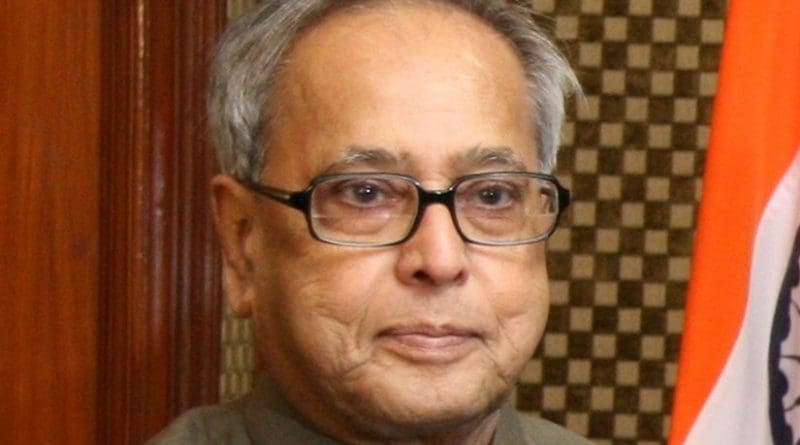Is It Appropriate For President Of India To Release His Memoir While In Office? – OpEd
The popular President of India Mr. Pranab Mukherjee was elected as President with an overwhelming majority. With his vast and proven experience in administration and political management, the entire country was confident that he would guide the government and affairs of the nation with great vision and understanding. Ever since he became the President of India, Mr. Pranab Mukherjee has been conducting himself with the great dignity that goes with the position of the President of the country.
With such an accomplished background, many are surprised that Mr. Mukherjee has thought it fit to release his memoir while in office.
The memoir of any politician is bound to be controversial, as he would have come across many unsavoury developments. When such memoir are released by any politician, it creates considerable curiosity and many times they have been best sellers, with wide media coverage. In recent times, several ex-bureaucrats have also started writing memoirs pointing accusing fingers at their erstwhile bosses and criticising many persons and events without much of self criticism.
While the memoirs of such ex-bureaucrats and politicians appear to have become the order of the day, eye brows are inevitably raised when the President of India also releases his memoir like any other person, which could affect the image of the position of President of the country. Many people wonder as to why Mr. Pranab Mukherjee could not have waited for the completion of his term before releasing his memoir. Possibly in that case, he could have added his five years of President post also in his memoir which could have added even greater weight and gist.
In his memoir, Pranab Mukherjee appears to have been unkind to former Prime Minister Rajiv Gandhi under whom he served as Cabinet Minister for several years. Mr. Mukherjee has termed the opening of Ram Janmabhoomi by Mr. Rajiv Gandhi as an error of judgment that destroyed India’s image. He said that people felt these actions could have been avoided. It inevitably raises the question as to why Mr. Mukherkee had not quit when Mr. Rajiv Gandhi made this ‘error of judgement’, if he would feel so strongly about this.
Mr. Mukherjee was also highly critical about Mr. Rajiv Gandhi’s actions in Shah Bano case , which according to Mr. Mukherjee, eroded Mr. Rajiv Gandhi’s image. However, the fact is that Mr. Mukherjee was part of Mr. Rajiv Gandhi’s team.
Mr. Mukherjee has also been highly critical about the implementation of Mandal Commision’s recommendations which according to him, ‘contributed to reducing social justice in society though it also divided and polarized different sections of population’. Mandal Commisions reports are still discussed in the country and many people approve Mandal Commission’s recommendations. Mr. Mukherjee’s view on Mandal Recommendation could become highly controversial and raise stormy debate and he may even be criticised by some as being biased. Should President of India’s post be subjected to such controversies ?
Further, Mr. Mukherjee has tried to defend himself by stating that ‘he was shell shocked and flabbergasted’ at his ouster from Mr.Rajiv Gandhi’s cabinet. He said that many stories have been circulated, that he aspired to be the interim Prime Minister, which are false and spiteful. It is quite possible that some other people may have different views and it may even become a media debate.
While Mr. Mukherjee certainly is entitled to have his views on such matters, the question is whether he should air such views when he holds the august office of President of India.
One cannot be blamed if he would think think that Mr. Pranab Mukherjee has set up an undesirable precedent by releasing his memoir while in office as President of India.

